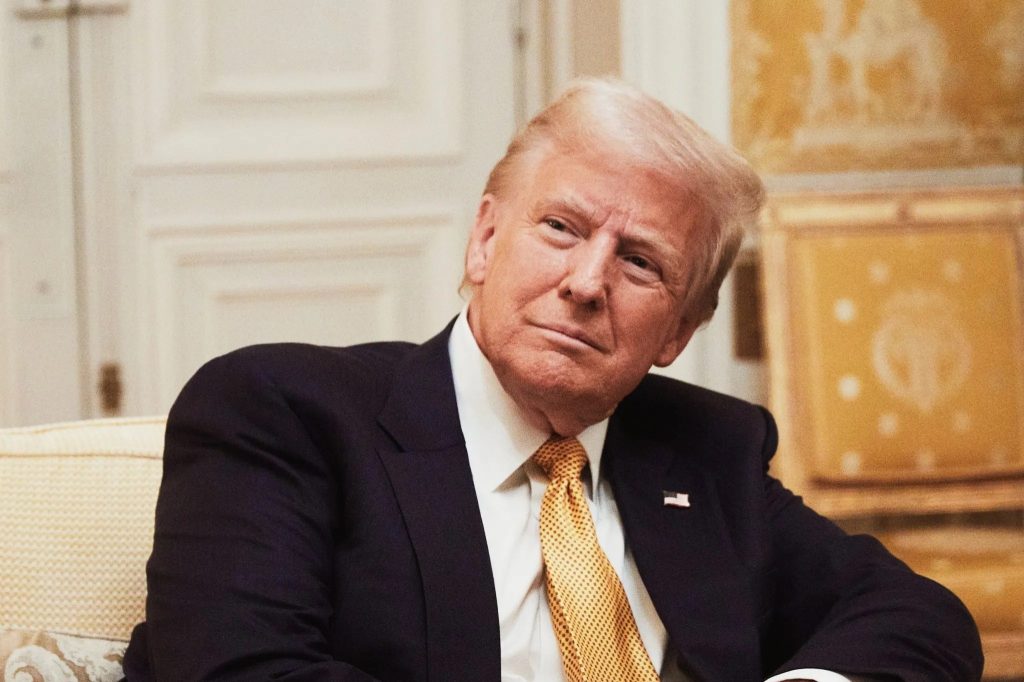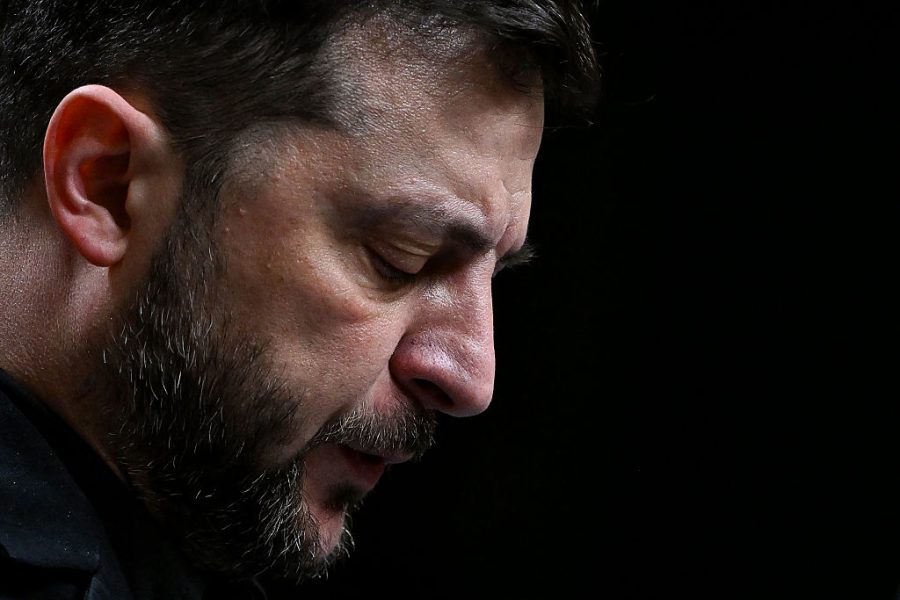In one place at least, the reaction to Donald Trump’s threats to annex Greenland, Canada and the Panama Canal has been one of unequivocal joy. That is Russia — and for obvious reasons. Most Russians have long seen US language about the “rules-based order” as a mere mask for US empire and US national interests. In their view, Trump has now removed the mask.
Even more importantly, for the Russian establishment Trump’s words are a confirmation that he and Vladimir Putin see international affairs in very much the same way: as a matter of spheres of influence, transactionalism, and the ruthless defense of national interests.
During the Ukrainian revolution and the Russian intervention in Ukraine in 2014, German chancellor Angela Merkel reportedly said that Putin was not in touch with reality and was “living in another world.” Trump lives there too. This raises a horribly disquieting question for British and European elites: what if Putin and Trump (and Xi Jinping, Narendra Modi and Mohammed bin Salman) are in closer touch with reality than European establishments have been for the past generation and more, and are therefore better placed to agree among themselves?
After all, these leaders are in good company: Their coldly realist view of the world was first formulated intellectually by Thucydides more than 2,400 years ago. What if a better basis for international peace is a respectful understanding that states will define their interests for themselves? When those interests are vital, states can go to war to defend them.
It could be time to give Trump’s realism a chance
The liberal internationalists like Merkel (who permeate the western-educated classes and formulate the rhetoric of western governments) see this as a world-historic regression and a tragedy. And so it may turn out to be. This is not however fore-ordained. We should be willing to consider the possibility that Trump’s approach may form a better basis for world peace than that pursued by the US and its European satellites since the end of the Cold War; though only if — and it is a colossal if — Trump is willing to understand and respect the vital interests of other major states, and is truly anxious to avoid more (domestically unpopular) wars. If so, it is highly unlikely that Russia or China would run the existential risks of attacking US vital interests as defined by Trump.
It is hardly as if the US liberal internationalism of recent decades has been successful in preventing wars, reducing international tension or even (outside the former Yugoslavia) ending humanitarian catastrophes. On the contrary, it has contributed to a number of catastrophes. This is of course largely due to recalcitrant international realities; but it is also because liberal internationalism became completely entwined with the “Wolfowitz Doctrine” of 1992 — adopted to a great extent as the standard operating procedure of every subsequent US administration — whereby the United States should be the sole hegemon, not merely in the world as a whole, but in every region of the world.
This would be in the name of spreading “freedom,” but would be pursued if necessary through the exertion of military force and economic pressure. No other country would possess any influence beyond its own borders except what was allowed by Washington. All states would be required to change their domestic political systems and policies in accordance with US ideas and wishes. This was the mailed fist behind Fukuyama’s “End of History.”
This is really the kind of thing you expected to hear in the penultimate scenes of the old James Bond movies, when the arch-villain, having tied Bond up, cackles: “Now that you are at my mercy, Commander Bond, I vill reveal to you my brilliant plan to dominate ze vurld, kha kha kha!”
It should always have been apparent to anyone with the slightest sense of history or ability to see the world through the eyes of non-western nations that this US plan would be rejected by most states and would lead to extreme tension and the risk of war with Russia, China and any other state which believed that it had a historic right and a vital interest in exerting influence beyond its borders — and a vital interest as defined by itself, not the United States.
The Wolfowitz Doctrine formed the basis for the later “Bush Doctrine,” which Senator Teddy Kennedy described as “a call for twenty-first century American imperialism that no other nation can or should accept.” Its goals are also now quite clearly far beyond the diminished military and economic capability of the United States, let alone Europe. Since liberal internationalism has so clearly failed, maybe it is time to give Trumpian realism a chance.
For the EU, Trump’s renunciation of liberal internationalism is the most terrible shock. Let us hope however that it may be a salutary one could help to save the EU, at least in a remodified form. The EU, which in its first decades was an immensely valuable institution, has in recent years launched itself on a potentially suicidal path through its own version of the liberal internationalist megalomania that led the US astray.
The EU tried to turn itself from a loose confederation of nations into a form of supranational state, but lacking any basis of popular legitimacy — whether national or democratic — for this program. It abolished internal borders between EU states without securing the external ones; it fantasized the infinite fungibility of societies, cultures and populations (and in the process demanded that eastern European nations founded on ethnic nationalism agree to accept their ethnicities’ short-term dilution and long-term abolition); it relaxed its rules for membership for the sake of wider and wider expansion; and it tried to insist that countries outside the EU and NATO observe the same rules as members of those groups. Now, it is even dreaming of itself as some sort of military superpower, although most of its “soldiers” could be kindly described as subsidized backpackers.
Having presented this defense of Trump, it is now necessary to qualify it. If Trump’s blustering threats extract concessions from Denmark, Panama, Canada and Mexico (the latter especially, in the field of controls on migration), then they can be said to serve American interests. It is however also quite obvious that Trump loves bluster for the sake of bluster and has no interest in controlling his own mouth. Calling Canada “the fifty-first state” and renaming the Gulf of Mexico “the Gulf of America” achieves nothing except to strengthen national resistance to American demands.
Then again… What threats do Russia and China really pose in the Arctic?
It also goes without saying that if Trump really annexed Greenland through force or economic blackmail, or (as he has also threatened to do), launched cross-border military strikes on Mexican drug cartels, this would be a disaster for the US that would push countries in Europe into the arms of Russia, and the US’s neighbors in Latin America into the arms of China. In the case of Greenland at least, it is also quite unnecessary. The Danes and Greenlanders are hardly going to reject US demands for more military bases or more mining concessions in Greenland.
With regard to Greenland in particular, there is one more crucial point to be made. I have presented Trump’s thinking as rational in the context of ancient and universal thinking about state interests and relations between states. But what if there is now a new universal factor that threatens to make all these paradigms irrelevant in the long term? The whole cause of the new US and international security and commercial interest (not only on the part of Trump) in Greenland and the Arctic is the opportunities and challenges created by the melting of the polar ice due to anthropogenic climate change.
Further melting of the Greenland ice cap, contributing seven inches to sea levels by 2100 according to ISMIP6 models (which are however conservative — many experts believe that much higher rises are possible), will disrupt ocean currents (including the Gulf Stream) and weather patterns, and represent climate change that organized states — including the US — will struggle with. When Trump is ancient history, his posthumous defense will be that he wasn’t that much more deluded than most other contemporary leaders.

























